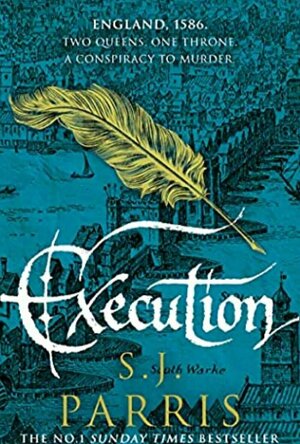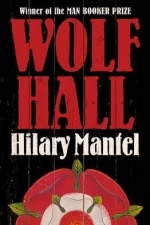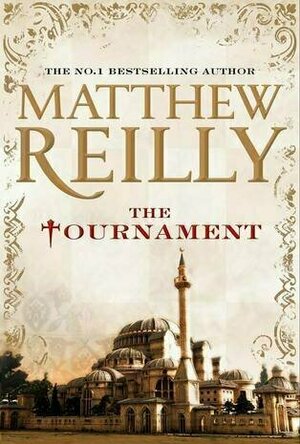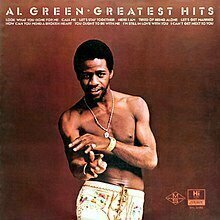Search
Search results
I've read a couple of other historical novels by this author, which were quite enjoyable, but not great. I had to review this after finishing this morning as it was so much better and a really rewarding read.
The novel covers the reign of Henry VIII from the point of view of Will Somers, the man who becomes the king's jester or fool. This gives the book a totally different twist and insight from something concentrating on the usual courtly suspects. Will is in the thick of things, with a front row seat in the course of history, if you like, but he's not one of the players in the drama.
The novel is actually written in the first person, and it's very rarely that I like this because in the hands of most authors it is clunky, but here I had to go back and check that this was so, as it seemed so natural.
Obviously, hindsight is a wonderful thing in history and some of the points made are from the point of view of someone with historical hindsight, but there's also a lot of psychological truth in there and you can quite clearly see why characters act the way they do.
Now, my only problem is that MCB was not a writer of authorial afterwords, like many present authors. What I really want to know is how much of the story is true (within the bounds of fictional probability!) and what is fiction/surmise - and what happened to Will Somers next?!
The novel covers the reign of Henry VIII from the point of view of Will Somers, the man who becomes the king's jester or fool. This gives the book a totally different twist and insight from something concentrating on the usual courtly suspects. Will is in the thick of things, with a front row seat in the course of history, if you like, but he's not one of the players in the drama.
The novel is actually written in the first person, and it's very rarely that I like this because in the hands of most authors it is clunky, but here I had to go back and check that this was so, as it seemed so natural.
Obviously, hindsight is a wonderful thing in history and some of the points made are from the point of view of someone with historical hindsight, but there's also a lot of psychological truth in there and you can quite clearly see why characters act the way they do.
Now, my only problem is that MCB was not a writer of authorial afterwords, like many present authors. What I really want to know is how much of the story is true (within the bounds of fictional probability!) and what is fiction/surmise - and what happened to Will Somers next?!
Execution is the sixth book set in Elizabethan world of Giordano Bruno. I have read the first book in this series, so it was definitely on my radar, but as so often happens with me, I got distracted by other books 🤯
The fact that I haven’t (yet) read books 2-5 has made no difference at all to my great reading enjoyment, so this can be read as a one off (but why would you do that? Books 1 and 6 are fab, so I’ll be reading books 2-5 without a doubt).
Bruno is working undercover for Elizabeth I’s spymaster, Francis Walsingham, and they hope to stop what becomes known as The Babington Plot - a plot to kill Elizabeth I, break Mary Queen of Scots out of prison and put her on England’s throne instead. This is all about Elizabeth’s claim to be queen. Henry VIII has disowned her as illegitimate when Anne was beheaded, and she was a Protestant to boot! Babington and his crew are staunch catholics, and they want a catholic on the throne. Mary fits the bill.
Francis Walsingham is desperate to find an excuse to dispose of Mary, and Babington is providing the goods. There is a secret letter exchange going on between the plotters and that Walsingham knows about, but he needs to catch them in the act - and he needs to ensure that Mary implicates herself completely.
This is all historical fact, as is Bruno’s existence, and I think that’s what puts the icing on the cake for me. I love historical fiction that brings real characters to life on the page. Bruno is a great character - he’s intelligent, funny and emotional. Basically, he’s a great character to build a story around.
So much research must have gone in to this book, and I really appreciate that. The side characters add couloir and substance to the whole story.
Many thanks to The Pigeonhole for serialising this book, and I’ve now given myself the rather enjoyable task of catching up with Bruno!
The fact that I haven’t (yet) read books 2-5 has made no difference at all to my great reading enjoyment, so this can be read as a one off (but why would you do that? Books 1 and 6 are fab, so I’ll be reading books 2-5 without a doubt).
Bruno is working undercover for Elizabeth I’s spymaster, Francis Walsingham, and they hope to stop what becomes known as The Babington Plot - a plot to kill Elizabeth I, break Mary Queen of Scots out of prison and put her on England’s throne instead. This is all about Elizabeth’s claim to be queen. Henry VIII has disowned her as illegitimate when Anne was beheaded, and she was a Protestant to boot! Babington and his crew are staunch catholics, and they want a catholic on the throne. Mary fits the bill.
Francis Walsingham is desperate to find an excuse to dispose of Mary, and Babington is providing the goods. There is a secret letter exchange going on between the plotters and that Walsingham knows about, but he needs to catch them in the act - and he needs to ensure that Mary implicates herself completely.
This is all historical fact, as is Bruno’s existence, and I think that’s what puts the icing on the cake for me. I love historical fiction that brings real characters to life on the page. Bruno is a great character - he’s intelligent, funny and emotional. Basically, he’s a great character to build a story around.
So much research must have gone in to this book, and I really appreciate that. The side characters add couloir and substance to the whole story.
Many thanks to The Pigeonhole for serialising this book, and I’ve now given myself the rather enjoyable task of catching up with Bruno!
This isn’t the first time I’ve read this book, and it probably won’t be the last, either. I’m reading the first two books in preparation for reading the final book. Wolf Hall is as good as it was the first time round, and I think it’s a book that bears reading more than once - I’ve picked up things this time that I didn’t see the first read through. I have a sneaking suspicion that you could find something new, no matter how many times you read it.
It can be a little confusing at first, when Cromwell is referred to as ‘he’ throughout, but I slipped into the habit after a while. When learning about the Tudors at school, Cromwell is very much skimmed over. We learn that he had his moment of favour and then had his head chopped off 🤷🏼♀️. It seemed to be a bit of a professional hazard if you worked with royalty in those days.
This book gives Thomas Cromwell personality, feelings and you get to see his hopes and aspirations. He is portrayed as a thoroughly nice person, a good, caring father and employer. Someone who fought his way out of poverty, and tried to bring others out of that same situation. But he’s also shown to be calculating, cunning, a man that is no fool. There would have to be an element of the cut-throat about a man who wanted to work with Henry VIII; a king who was unpredictable, to say the least, and easily influenced by those around him.
I adore this period in history. Nothing is as shocking as real life, and I cannot for the life of me get over how cheap life was in a time where it should have been worth more (with no antibiotics, high infant and maternal mortality, death around the corner from simple illnesses). I’m really looking forward to rereading the second book in this trilogy now.
It can be a little confusing at first, when Cromwell is referred to as ‘he’ throughout, but I slipped into the habit after a while. When learning about the Tudors at school, Cromwell is very much skimmed over. We learn that he had his moment of favour and then had his head chopped off 🤷🏼♀️. It seemed to be a bit of a professional hazard if you worked with royalty in those days.
This book gives Thomas Cromwell personality, feelings and you get to see his hopes and aspirations. He is portrayed as a thoroughly nice person, a good, caring father and employer. Someone who fought his way out of poverty, and tried to bring others out of that same situation. But he’s also shown to be calculating, cunning, a man that is no fool. There would have to be an element of the cut-throat about a man who wanted to work with Henry VIII; a king who was unpredictable, to say the least, and easily influenced by those around him.
I adore this period in history. Nothing is as shocking as real life, and I cannot for the life of me get over how cheap life was in a time where it should have been worth more (with no antibiotics, high infant and maternal mortality, death around the corner from simple illnesses). I’m really looking forward to rereading the second book in this trilogy now.
Deborah (162 KP) rated Queen's Gambit in Books
Dec 21, 2018
This wasn't a bad début novel by any means and it seems that lots of people really enjoyed it. I didn't dislike it, I actually found it a pleasant read, but it was also fairly undemanding. You might want that from a book sometimes or you may want something a bit more challenging. It may be that there are so many historical novels out there and of these ones about the Tudors top the leaderboard by a mile, so for me, a Tudor historical novel needs to really outstandingly good to make it stand out from the crowd. I also read a fair bit of 'proper' history (i.e. non-fiction books), so perhaps I know too much for there to be any surprises awaiting me? I do tend to get riled by bizarre deviations from historical fact.
Anyway, the novel deals with part of the life of Katherine Parr, last wife of Henry VIII, starting with the death of her second husband and continuing just past her own demise. I suppose an historical novel will give the author more leeway to explain real events and there is a sort of expectation that a book should be a nice tidy package, explaining everything within its covers. I don't really feel that Fremantle does this with the Parr/Seymour relationship. It's not easy to see why an intelligent woman could be taken in by a man like this anyway, but in the book it was as if Katherine actually was attracted to him against her will, so the relationship never sat quite happily for me. The other main protagonist is a woman called Dorothy (Dot) Fownten, who acts very much as a maidservant to Katherine, and her stepdaughter, Meg Neville. I was interested to learn that Dot was a real historical character, but so little is known of her that Fremantle has had the liberty of embroidering her story.
As I said, not a bad book. Good if you want something fairly undemanding, such as a beach read. I suspect it will appeal to fans of Philippa Gregory and Alison Weir, but those who prefer Penman may find it a little lacking.
Anyway, the novel deals with part of the life of Katherine Parr, last wife of Henry VIII, starting with the death of her second husband and continuing just past her own demise. I suppose an historical novel will give the author more leeway to explain real events and there is a sort of expectation that a book should be a nice tidy package, explaining everything within its covers. I don't really feel that Fremantle does this with the Parr/Seymour relationship. It's not easy to see why an intelligent woman could be taken in by a man like this anyway, but in the book it was as if Katherine actually was attracted to him against her will, so the relationship never sat quite happily for me. The other main protagonist is a woman called Dorothy (Dot) Fownten, who acts very much as a maidservant to Katherine, and her stepdaughter, Meg Neville. I was interested to learn that Dot was a real historical character, but so little is known of her that Fremantle has had the liberty of embroidering her story.
As I said, not a bad book. Good if you want something fairly undemanding, such as a beach read. I suspect it will appeal to fans of Philippa Gregory and Alison Weir, but those who prefer Penman may find it a little lacking.
Phil Leader (619 KP) rated The Tournament in Books
Nov 27, 2019
Australian author Matthew Reilly is known for his fast paced, edge of your seat, suspension of belief thrillers. This book is a considerable change from that, being a slower and more thoughtful tale of 16th century murder and intrigue.
Reilly's books, under the usual all-out action sequences, always convey a good plot and storyline and have strong characterisation. Here those are to the fore. The main players are a young Princess Elizabeth; daughter of King Henry VIII and soon to be Elizabeth I and her teacher, Roger Ascham. Sultan Sulieman the Magnificent has invited all the best chess players across Europe to play to decide which nation can claim to have the ultimate chess champions. Elizabeth and Roger accompany England's entrant both to avoid the black death but also because Ascham wants to give Elizabeth a wide education just in case she becomes queen.
After a few adventures on the way the party arrives, along with the representatives of the other nations. Court intrigue and politics abound and everyone has their own agenda. When there is a high profile murder, Sulieman requests the aid of Ascham - known for his insight and ability to resolve problems using logic - to find the culprit before there is an international scandal. As the bodies pile up, Ascham and young Elizabeth face dangerous and unknown enemies and uncover plots and dark secrets.
The medieval detective story is not entirely new for Reilly. Previous he has written a couple of short stories that are available for download from his website - www.mattewreilly.com - with this theme. Dead Prince concerns the death of the Dauphin in France and is investigated by the king's architect. Roger Ascham and the King's Missing Girl is a story that precedes The Tournament by a few months and effectively introduces Ascham and his skills as he tracks down a serial kidnapper and murderer in Cambridge.
Reilly acknowledges at the end of the book that he was influenced by works such as The Name of the Rose and indeed this has much of the same flavour. The plot is complex and has the chess match running through it (and indeed sections of the book are named after chess pieces). Everything is very well handled by Reilly and everything unravels nicely in the finale of the book.
This has also been well researched. With many real historical figures included (not only Elizabeth, Ascham and Sulieman but a supporting cast that includes Ivan the Terrible and Michelangelo) and the feel of all the descriptions is very authentic.
One aspect that has to be mentioned is that, since Reilly wanted to explore something that may have influenced Elizabeth in her future life, there are a fair number of events of a sexual nature that occur. Some of these have a direct bearing on the plot, others are so that Elizabeth can form opinions on sex and marriage. Reilly has printed a warning at the start of the book that this is not for younger readers, and I can fully endorse that.
I can imagine that a number of Reilly fans will not enjoy this book - the pace is slow and methodical rather than headlong and there are very few 'action' sequences to speak of. However I would recommend this book to anybody who likes historical detective style stories.
Reilly's books, under the usual all-out action sequences, always convey a good plot and storyline and have strong characterisation. Here those are to the fore. The main players are a young Princess Elizabeth; daughter of King Henry VIII and soon to be Elizabeth I and her teacher, Roger Ascham. Sultan Sulieman the Magnificent has invited all the best chess players across Europe to play to decide which nation can claim to have the ultimate chess champions. Elizabeth and Roger accompany England's entrant both to avoid the black death but also because Ascham wants to give Elizabeth a wide education just in case she becomes queen.
After a few adventures on the way the party arrives, along with the representatives of the other nations. Court intrigue and politics abound and everyone has their own agenda. When there is a high profile murder, Sulieman requests the aid of Ascham - known for his insight and ability to resolve problems using logic - to find the culprit before there is an international scandal. As the bodies pile up, Ascham and young Elizabeth face dangerous and unknown enemies and uncover plots and dark secrets.
The medieval detective story is not entirely new for Reilly. Previous he has written a couple of short stories that are available for download from his website - www.mattewreilly.com - with this theme. Dead Prince concerns the death of the Dauphin in France and is investigated by the king's architect. Roger Ascham and the King's Missing Girl is a story that precedes The Tournament by a few months and effectively introduces Ascham and his skills as he tracks down a serial kidnapper and murderer in Cambridge.
Reilly acknowledges at the end of the book that he was influenced by works such as The Name of the Rose and indeed this has much of the same flavour. The plot is complex and has the chess match running through it (and indeed sections of the book are named after chess pieces). Everything is very well handled by Reilly and everything unravels nicely in the finale of the book.
This has also been well researched. With many real historical figures included (not only Elizabeth, Ascham and Sulieman but a supporting cast that includes Ivan the Terrible and Michelangelo) and the feel of all the descriptions is very authentic.
One aspect that has to be mentioned is that, since Reilly wanted to explore something that may have influenced Elizabeth in her future life, there are a fair number of events of a sexual nature that occur. Some of these have a direct bearing on the plot, others are so that Elizabeth can form opinions on sex and marriage. Reilly has printed a warning at the start of the book that this is not for younger readers, and I can fully endorse that.
I can imagine that a number of Reilly fans will not enjoy this book - the pace is slow and methodical rather than headlong and there are very few 'action' sequences to speak of. However I would recommend this book to anybody who likes historical detective style stories.




